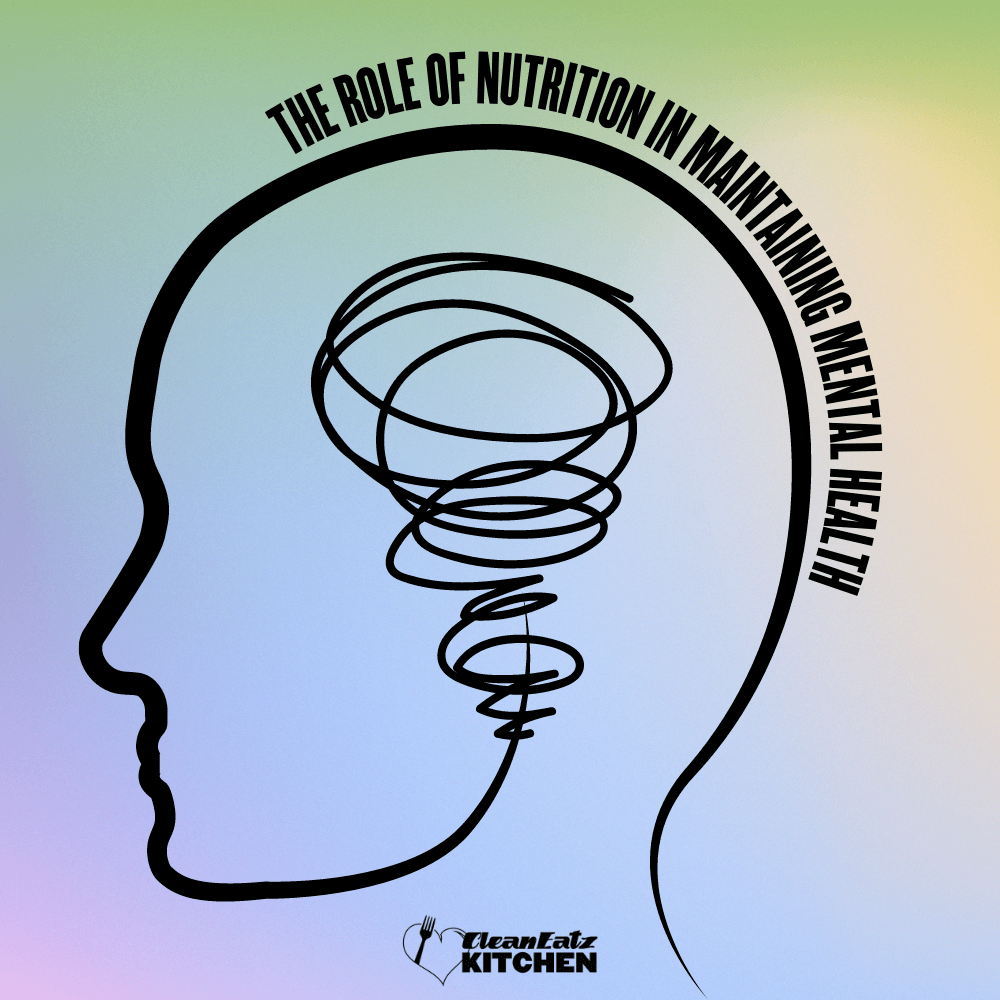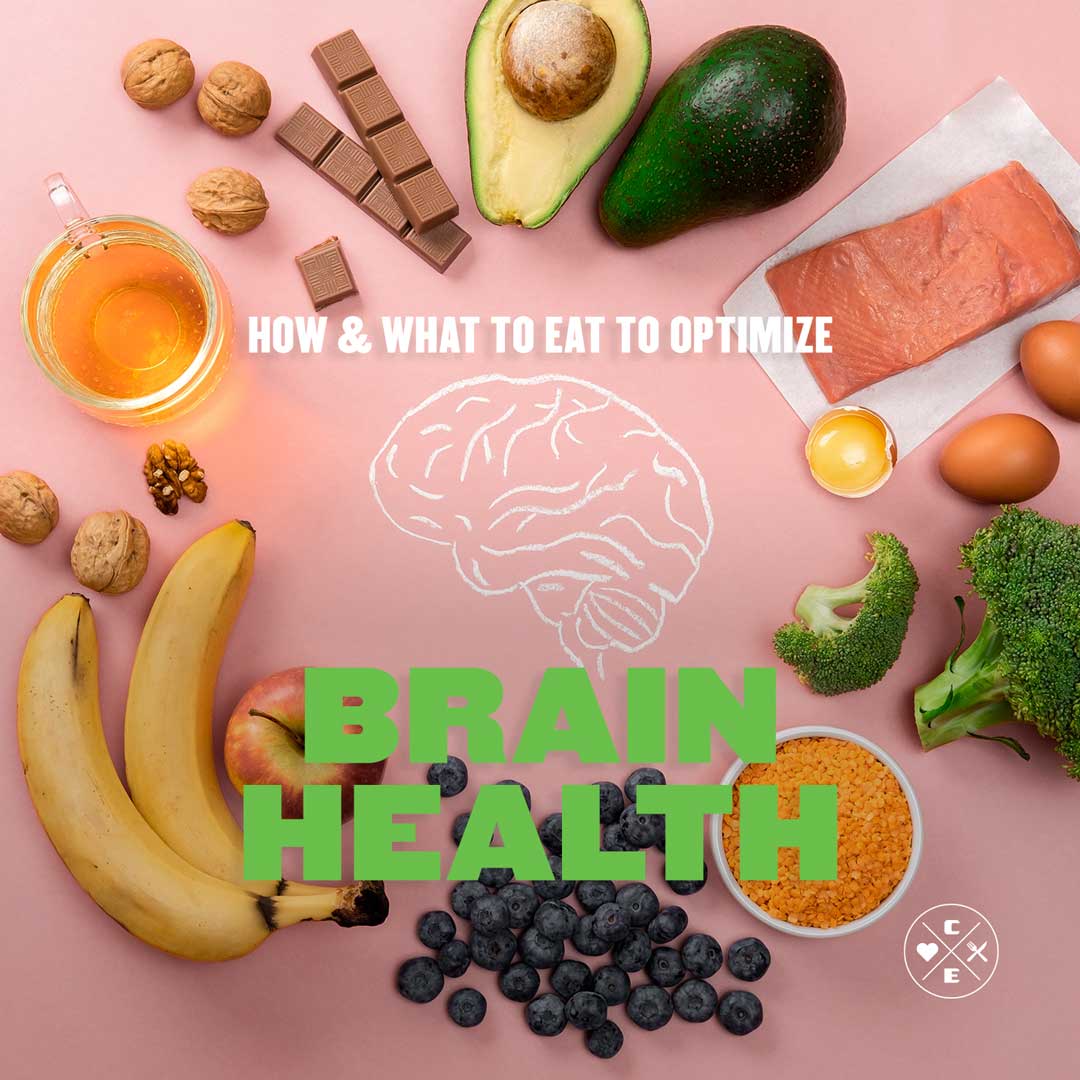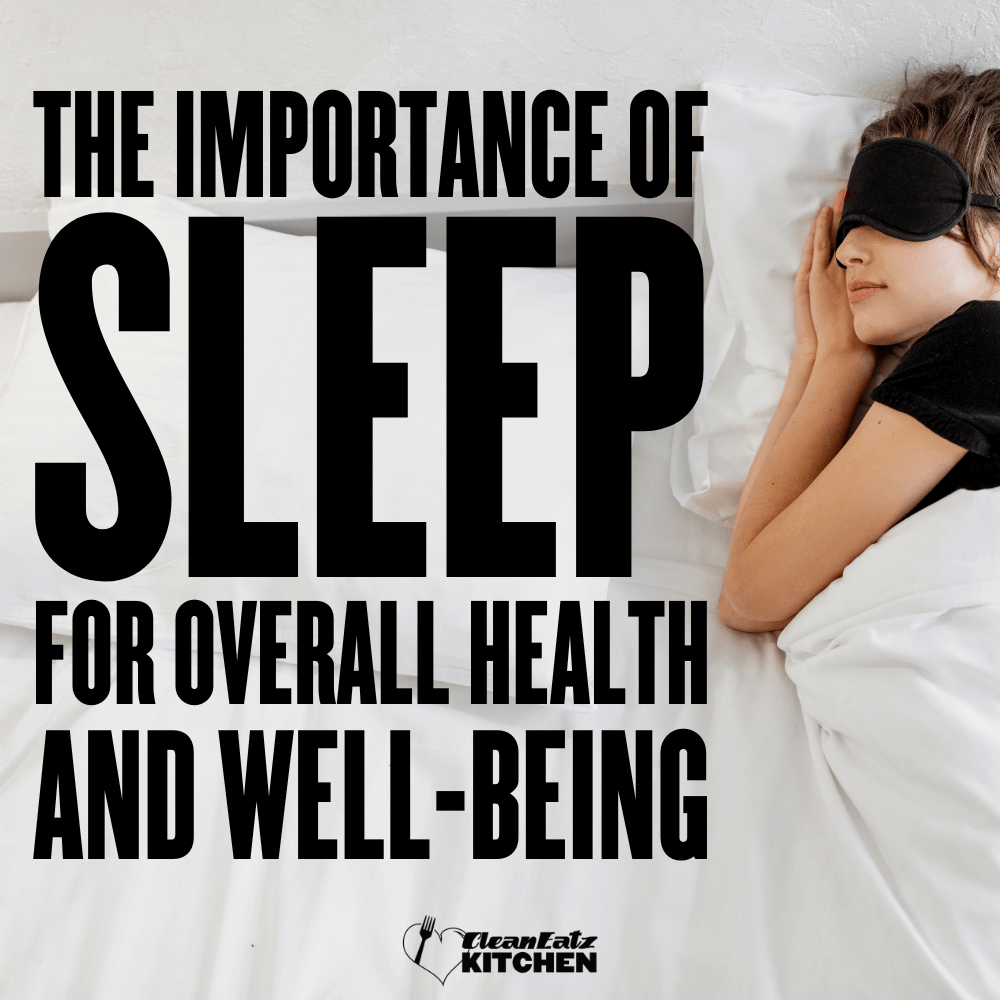
The Role of Nutrition in Maintaining Mental Health
Jason Nista
Nutrition
|
Mental Health
7 minute read
The Role of Nutrition in Maintaining Mental Health
Did you know that the food you eat can profoundly impact your mental well-being? It's true! Eating healthy meals and snacks packed with essential nutrients can help your brain stay healthy and function properly. A mental health meal plan is essential for every individual trying to stay fit both physically and mentally.
But how does nutrition play such an important role in mental health, and what are some ways to ensure that our diets are helping us stay mentally healthy? Let's find out in this article.
How Nutrition Impacts Your Mental Health
Have you ever stopped to consider that the foods you consume can have a direct influence on not only your physical health but also your mental well-being? It's an undeniable truth! What we put into our bodies can significantly impact how we feel, think, and act.
Let's explore the role of macronutrients like protein, carbohydrates, and fats on mood regulation and the importance of having a mental health meal plan.
Protein-Rich Foods for Brain Health
Protein is essential for many processes in the body, including growth, development, energy production, and maintenance of body tissues. Proteins are made up of amino acids—the building blocks of life—and they play a key role in many biological processes related to neurotransmitter production and metabolism.
Eating enough protein has been shown to improve mood and reduce anxiety. For example, some studies suggest that people who eat more plant-based proteins experience less depression than those who consume more animal proteins. Other studies have found that increasing dietary intake of specific amino acids such as tryptophan may help to reduce symptoms of depression and anxiety.
Carbohydrates: The Brain's Preferred Fuel Source
Carbohydrates are the body's preferred fuel source for energy production because they can be broken down quickly into glucose molecules which are then used for energy by cells all over the body—including those in the brain. In addition, eating carbohydrates has been shown to increase serotonin levels in the brain, which is associated with feelings of calmness and contentment, as well as improved sleep quality.
There is some evidence that high-fiber carbohydrates such as oatmeal or quinoa can help reduce depression by slowing digestion which helps maintain steady blood sugar levels throughout the day. Additionally, whole grains like oats or brown rice provide essential B vitamins necessary for healthy brain function.
The Role of Fats in Mental Well-being
Fats are essential in maintaining proper brain function and mental well-being because they act as structural components in cell membranes throughout the body—including those in the brain. They also provide insulation for nerve cells so that electrical signals can travel freely between them without interference from outside sources.
Fatty acids like omega-3s are essential for proper cognitive functioning since they have anti-inflammatory properties, which can help protect against neurodegenerative diseases like Alzheimer's or dementia. Additionally, eating foods high in monounsaturated fats, such as olive oil or avocados, has been associated with a reduced risk of depression due to their ability to modulate hormones involved in mood regulation, such as serotonin and dopamine.
Nourish Your Mind: Enhance Your Diet to Optimize Psychological Well-Being
Eating a balanced and nutrient-dense diet is vital to maintaining good mental health. In addition, certain foods can be incorporated into your daily routine to help promote mental wellness.
Ensuring you adhere to a healthy, balanced diet is essential for your mental well-being and emotional stability. Here are some valuable tips on ensuring your food provides all the key nutrients necessary for optimum health.
What Should I Eat?
So what should you be eating to improve your mental health? The answer is simple: fruits, vegetables, whole grains, lean proteins, and healthy fats. These foods are all packed with vitamins and minerals that help keep your brain functioning optimally. They also provide energy, like processed or fast foods, without spiking your blood sugar levels. Eating regular meals throughout the day will also help stabilize your moods and give you more energy overall.
Incorporating Healthy Foods into Your Diet
Eating a healthy diet isn’t always easy or convenient, so here are some tips for incorporating more nutritious foods into your everyday routine:
Meal prep: take an hour or two on the weekend to prepare meals for the week ahead, or use a meal plan delivery service so you don't have to worry about cooking during busy weeknights
Healthy snacks: pack some healthy snacks like nuts or fruit, so you don't reach for sugary treats when hunger strikes between meals. Or you can even drink a belly buster smoothie to fight the hunger.
Shop smartly: plan out what ingredients you need before going grocery shopping, so you don't pick up unhealthy impulse buys.
Get creative with recipes: try replacing unhealthy ingredients with healthier alternatives like zucchini noodles instead of pasta or cauliflower rice instead of white rice.
Find balance: allow yourself one "cheat meal" per week so you don't feel deprived but still stay on track with eating healthy most days of the week. A bonus tip- snack on your favorite clean protein bars to not feel so guilty after the cheat meal!
Eating Your Way to a Better Mood
Have you ever noticed that you feel happier and more relaxed after having a great meal? We often talk about how food affects our physical health, but what about mental health? The food we eat can positively or negatively affect our moods.
Mood-Boosting Foods
A diet consisting of plant-based foods, complex carbohydrates, and plenty of fruits and vegetables can increase overall health and boost our moods.
A Mediterranean-style diet—which is rich in lean protein, whole grains, olive oil, and fruits and vegetables—protects mental health and prevents and manages mental illnesses such as depression.
On the other hand, diets rich in simple carbohydrates (think cookies!), saturated fat (butter!), red meat (steak!), and refined sugars (candy!) can worsen mental health symptoms.
If you’re looking for the best way to improve your mood through diet, look no further than these nutrient-rich foods:
Leafy greens – Such as kale, spinach, and Swiss chard, are packed with folate, which helps produce serotonin–the "feel good" hormone–in the brain. They also contain antioxidants that help protect against inflammation–an underlying cause of depression.
Whole grains – Whole grains like oatmeal are high in complex carbohydrates, which help keep your blood sugar levels stable throughout the day. This will help prevent those mid-afternoon energy crashes that can lead to feeling down or sluggish.
Nuts & Seeds – Nuts & seeds are full of healthy fats that help promote better sleep patterns which can lead to increased energy levels during the day. Many nuts & seeds also contain high amounts of zinc which help regulate hormones associated with stress & anxiety.
Fruits – Most brightly colored fruits contain high amounts of Vitamin C, which helps reduce stress hormones in the body while also giving us an energy boost when we need it most! Whether you drink a belly buster smoothie or eat plain fruits, all of it is good for your health.
Eating Nutritional Food To Improve Your Mental Health
-
Eating a healthy diet is vital to maintaining good mental health
-
Protein-rich foods can improve mood and reduce anxiety
-
Carbohydrates provide energy for the brain, and eating high-fiber carbs can help reduce depression
-
Fats are essential for proper brain function and mental well-being
-
Some tips for incorporating more nutritious foods into your everyday routine include meal prep, packing healthy snacks, shopping smartly, getting creative with recipes, and finding balance.
Related Articles
How and What to Eat to Optimize Brain Health?
16 minute read
The Importance of Sleep for Overall Health and Well-Being
13 minute read



